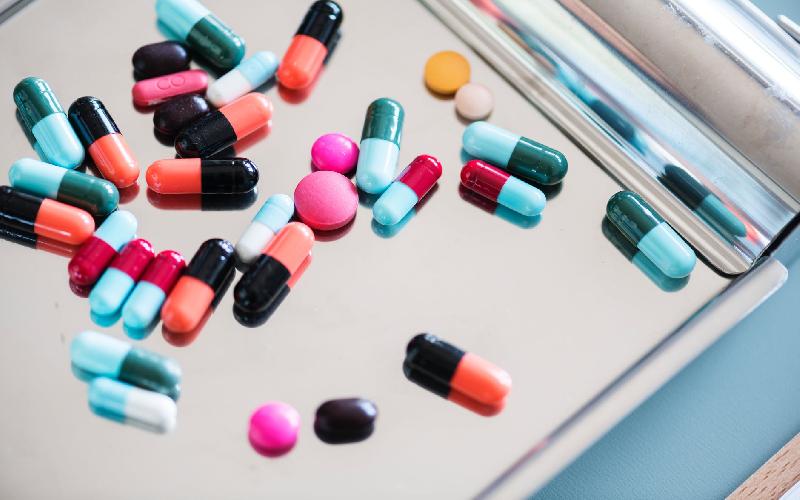Facts and Myths about Multivitamins


This article will give you the facts and myths of taking multivitamins and whether they are important or not.
Most research proves that Vitamin C does not prevent colds, but may lessen the symptoms and allow you to heal faster.
Studies have shown several types of vitamins and minerals may lower the risk eye problems like macular degeneration, a leading cause of vision loss in people 65+. A balanced diet rich in fruits and vegetables can help give the nutrients needed to prevent such diseases. It is important to call your doctor if there is a high risk to see if there is opportunities for supplements to take. Lifestyle changes may also help. And if you somke, try to find ways to quit.
There are 13 types of vitamins that are essential for good health that helps give you a balanced diet. If you lack certain vitamins in your diet, contact your doctor for supplements you’re not getting on a daily basis.
Vitamin B12 is an important vitamin as it can cause anemia, memory loss, confusion and a tingling in your arms and legs. There is little to no evidence it can improve your athletic ability or provide more energy, but a diet inducing meat, fish, or dairy products should provide enough.
While calcium and Vitamin D are good healthy bones, research shows that magnesium, potassium and Vitamin K are good too. If you have a high risk of osteoporosis that results in brittle, thinning bones, your doctor may recommend calcium or Vitamin D supplements.
The body needs vitamins for growth, digestion and nerve function. Minerals support cells and help organs do their jobs. Vitamins are known by the letters A, B, C, D, E, and K. Minerals such as calcium, builds bone and aids in blood clots an iron, help carry blood and oxygen through the body.
Vitamins like C or B can make your urine orange or yellow-green if you’re taking too much, signaling the kidneys getting rid of the excess. But test it as it can be dangerous to get too many nutrients. If you’re taking the recommended amounts of vitamins and minerals, it won’t color your urine.
Pregnant or breastfeeding women need more nutrients as well as others to fill special gaps. Vegans may not get enough from food either. And still others may have absorbing the nutrients they need:
Always talk with your doctor about taking supplements.
While supplements are a good way to get enough nutrients, they can become toxic if you take too many. An excess amount of Vitamin A can cause nausea, vomiting, and liver damage. Too much vitamin D can cause weakness, heart rhythm problems and confusion. Your body stores Vitamins A, D, E, K and iron, meaning an excess of these can build up in organs and tissues causing damage to your kidneys or liver.
While citrus fruits are an excellent source of Vitamin C, other fruits and vegetables are a good source as well. Most adults need an average of 75-90 milligrams per day, so a half cup of sweet red pepper or a 6-ounce glass of orange juice can do the job too.
Vitamin B12, which you get from foods and animal sources like meat, eggs, and dairy products, many people, especially vegans don’t get enough of this important vitamin. Your doctor can help by suggesting a supplement.
While researchers are always studying the effects of antioxidants to prevent genetic damage that turns cells into cancer, there is still no evidence taking supplements will lower the risk. Always talk with your doctor if you’re receiving cancer treatments before taking supplements. There is some research that suggests antioxidant supplements may keep cancer-fighting medicines from doing its job.
Women before menopause need more iron due to losing a little blood with menstrual cycles. Research suggest premenopausal women should get about 18 milligrams a day; pregnant women about 27 milligrams a day.
There are many experts who are divided on taking multivitamins. Recent studies show that healthy people may not even need them and also suggest that even taking one every day for several years may not help you to live longer. Still, there are some who say may help fill in missing nutrients in people’s diets. The one thing experts agree on is the best source of vitamins and minerals: FOOD, not pills.
The different forms of B vitamins help your body perform such jobs like changing food into energy. Foods such as grains, beans, nuts, meat, eggs, and fish are good sources of B vitamins. Vitamin B12 is found exclusively in foods that come from animal products.
People with dark skin may have less levels of Vitamin D as well as older people because the skin becomes less efficient in converting sunlight to Vitamin D as we get older. Those who tend to stay out of the sun due to sensitivity or a risk to skin cancer may also need extra Vitamin D. Your doctor may be able to give you a blood test to see how much Vitamin D you may need.
Folic acid helps prevents birth defects like problems with the brain and spinal cord. It is an important nutrient for women who are pregnant or those considering having a baby to make sure they are getting enough folic acid.
Potassium helps keep the heart beating regularly, and one study suggests it may lower systolic blood pressure (top number). Reducing blood pressure lowers the risk stroke, heart disease, heart failure and kidney disease. Teens and adults need about 4,700 milligrams of potassium per day and there are many potassium-rich foods in fruits and vegetables, milk, meat, and whole grains.
.